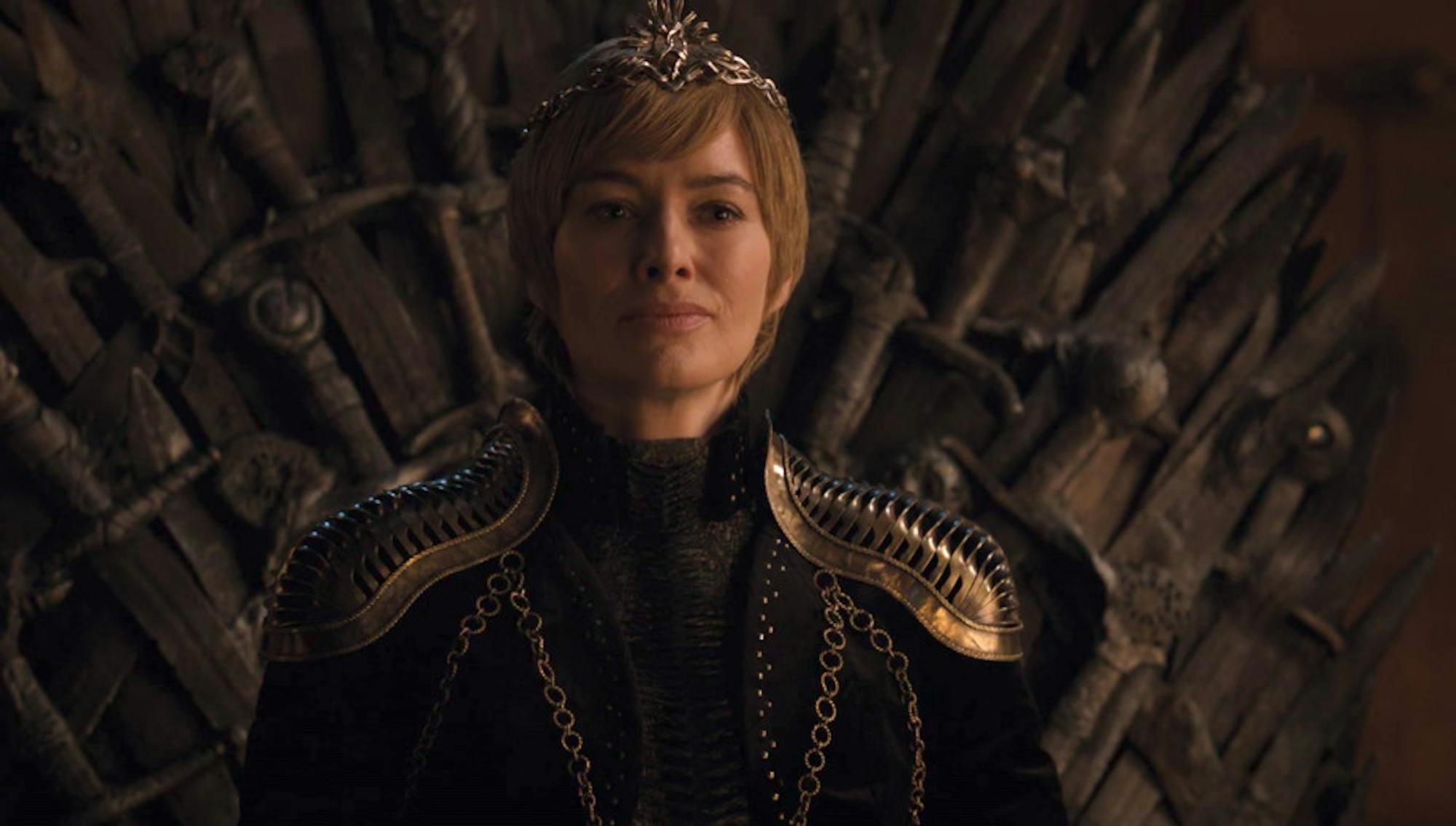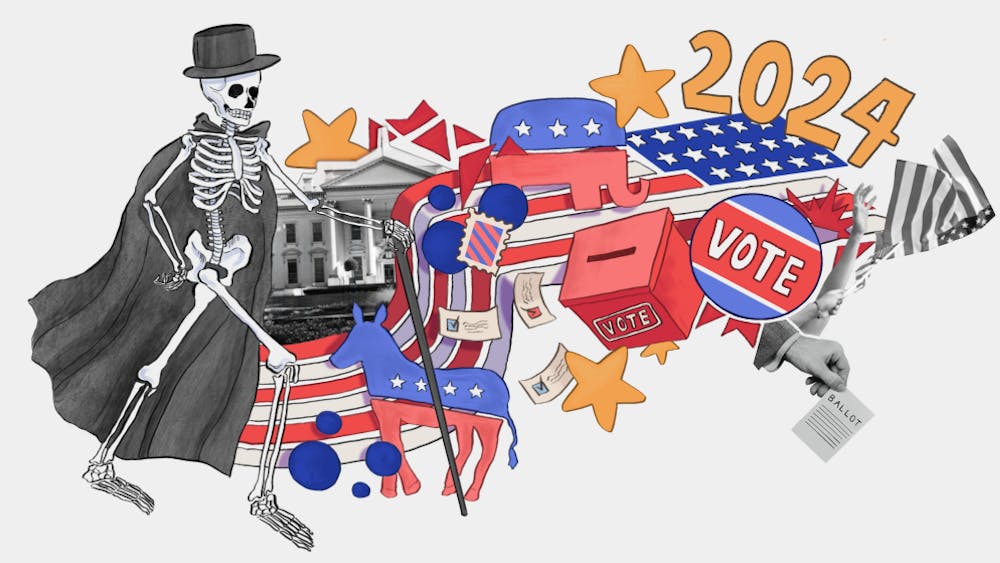
As discussed in an earlier piece, “Game of Thrones” exemplifies the common adage that art imitates life and life imitates art. This HBO megahit series contains numerous parallels to the partisan divide surrounding President Donald J. Trump’s border wall and the world’s extremist and despotic leaders.
The ongoing skirmish for the Iron Throne is dramatic, dangerous and divisive — and so is global politics. While Westeros would undoubtedly be better off if everyone agreed to cooperate against mutually destructive forces like the White Walkers, discord persists. The inescapable truth is that some issues are too complex for any one individual or state to deal with and require collaboration with others for mutual survival and prosperity. Jon Snow’s (Kit Harington) acceptance of the fact that he must pledge allegiance to Daenerys Targaryen (Emilia Clarke) in exchange for her help to defeat the White Walkers reflects this assertion, that can be applied to real life as well as fiction.
One of the most compelling aspects of “Game of Thrones” is its impactful dialogue. In recent seasons, Cersei Lannister (Lena Headey) has developed into a fierce villain that propagates an eerily Trump-like sense of self-importance and lack of consideration for others. At the end of season seven, Cersei rejects her brother Jaime Lannister’s (Nikolaj Coster-Waldau) decision to ride north and assist Jon and Daenerys in their fight against the White Walkers. She coolly says, “I don't care about making the world a better place. Hang the world.” Cersei’s insatiable appetite for power and indifference toward those she rules over is exemplified with this claim.
In his September 2018 speech at the UN, Trump said, “We reject globalism and embrace the doctrine of patriotism.” His lack of concern for international events portrays a larger, growing problem, as we begin to adhere to despotic, self-centered leaders.
Much of season seven was dedicated to Jon’s efforts to persuade Daenerys and Cersei to join him in the fight against the White Walkers. Cersei maintains an outward pretense of help but later reveals that she merely feigned her support with plans of backstabbing Jon and Daenerys. Cersei’s motivations are entirely individualistic — the good of society is of no concern to her. During his presidency thus far, Trump has echoed similar sentiments. He made clear that his approach to policy is “America first,” and has, on numerous occasions, clashed with allies such as Mexico and Canada to accomplish this.
Cersei, similarly, expresses a highly isolationist assertion that “everyone who isn’t us is an enemy,” echoing the Trump administration’s stance on foreign policy. To a large extent, he is choosing to terminate American involvement in international issues. This is applicable to countries beyond the U.S. — Kim Jong Un of North Korea has similarly disconnected his nation from the world. Others tend to be rather aggressive in terms of expanding their sphere of influence, with China becoming increasingly active in the South China Sea. Prominent examples of the United States’ increasingly isolationist stance include the agitation, rather than mediation, demonstrated toward the Israeli-Palestinian conflict with the relocation of the U.S. embassy to Jerusalem; and the removal of American troops from Libya in the wake of a civil war. On top of this, Trump’s relations with most NATO allies, as well as neighbors Canada and Mexico, have been strained, mirroring Cersei’s disintegrating relations with her own allies. Just as Cersei continues to alienate herself from the rest of the world at the expense of relations with neighbors and potential allies, the U.S. might be left isolated in the near future if it continues to alienate itself from the rest of the world.
Cersei’s isolationist views may be a result of the perception that everyone is out to harm her and her family. Over the series, she has developed a tenacious victim complex, resulting in her taking actions that alienate even those who are closest to her. Paralleling this, Trump also has been adamant that everyone cheats the U.S., particularly with regard to trade deals, which has laid the foundations of the trade war between the U.S. and China. His erratic decision-making has led to the resignation of numerous White House officials. Those who attempt to resist him are removed from power, such as former Secretary of State Rex Tillerson, who resigned due to disagreement with Trump’s policies. Similarly, Cersei ensures nobody who challenges her power stays alive, evident with her destruction of the Sept of Baelor, killing the High Sparrow. Furthermore, Trump’s promise to “Make America Great Again” by bringing more jobs and reducing immigration epitomizes Cersei’s speech to the lords of Westeros, during which she claims that the “foreign invaders will destroy the realm.” This is, however, a misguided mentality; it is mutually beneficial for countries to have free movement of labor and capital to achieve maximum efficiency in economic development and foster the creation of a utilitarian and mutually beneficial society.
In the season eight premiere of “Game of Thrones,” Jon juggles his responsibilities of pledging his allegiance to Daenerys and upholding his responsibility to protect the North as the elected king. We also see how he argues against his own family when defending Daenerys, to their ire. Jon realizes that he must put aside political and emotional disputes between houses to ensure their common survival against the Night King.
In season eight, episode two, Daenerys and Sansa Stark (Sophie Turner) discuss the power dynamics in Westeros, and all seems to be going well until Sansa blindsides Daenerys by insinuating that she will not relinquish her hold over the North after the war. In the past, we have seen Daenerys make questionable decisions when provoked by those who threaten her authority. She burned Randyll Tarly (James Faulkner) and his son Dickon (Tom Hopper), and almost impulsively flew off to King’s Landing with her dragons to destroy Cersei and the entire city. This behavior raises questions about her fitness to rule and whether she inherited her father’s insanity and obsession with power. Ideally, a ruler should be concerned with the good of the people, rather than maintaining his or her own power. Daenerys seems to forget that as time and again she reminds people of her objective to take over the Iron Throne. She moves on from a character who, in earlier seasons, wanted to “break the wheel” of power, to someone who is slowly being corrupted by her increasing influence. Daenerys also seems overly concerned when Jon reveals his true heritage to her, almost as if threatened by the fact that he is the true Targaryen heir to the throne. She seems unbothered by the fact that she has fallen in love with her nephew.
“Game of Thrones” is not simply a blockbuster show with dragons, sex and violence. Whether or not these allusions to real life events and people were intentional or purely coincidental, it is quite irrefutable that these similarities should certainly give us pause and help us think about the direction we are heading in. It is entirely plausible that these parallels exist on purpose, especially considering that the show has surpassed the books, and the writers now have more freedom to shape the characters however they want.
The age-old proverb, “the pen is mightier than the sword” may have some merit. Authors and screenwriters of fiction have immense power to influence the way people think. It is imperative for writers to provide social criticism for us to reflect upon. Throughout “Game of Thrones,” we’ve seen how houses and royal families collapse without support from their allies. House Targaryen fell due to the Mad King’s paranoiac obsession with power, while House Lannister rose to rule after years of building relationships and allies. There are problems that cannot be solved by individuals. In today’s world, we face pressing issues such as terrorism and climate change. While some countries are doing their part in an attempt to combat these problems, it is essential to develop a global support system and network for cooperation. In the midst of this, the U.S. must now, more than ever, lead the charge. Trump’s withdrawal from numerous international treaties, including the Paris Climate Accord, UN Commission on Human Rights and potentially the World Trade Organization serves to show how we may just be heading in the opposite direction.





